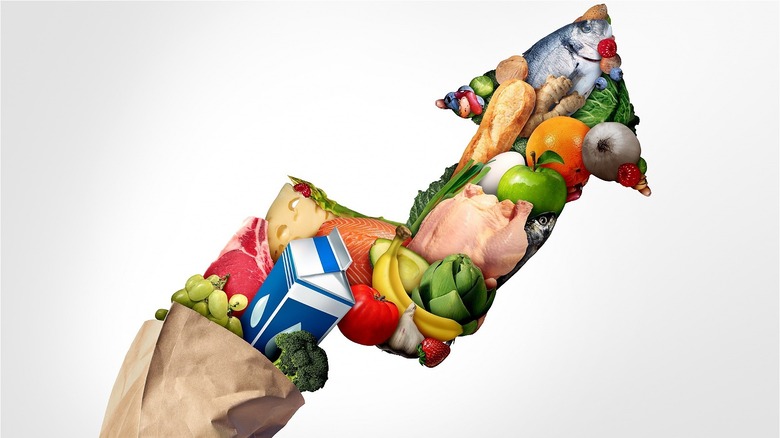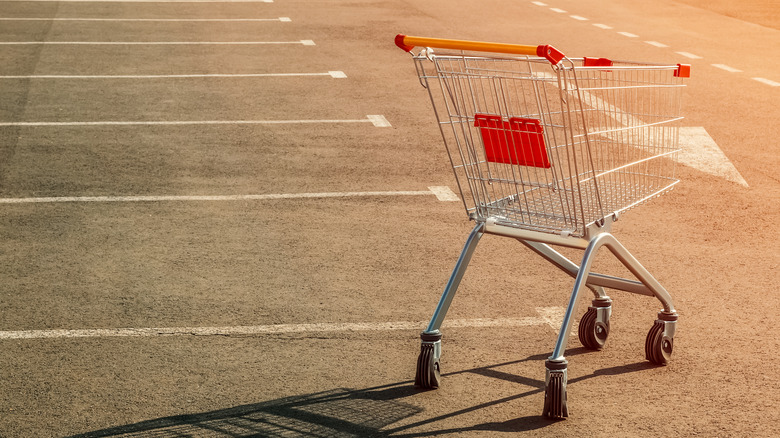The Kroger-Albertsons Merger Could Raise Grocery Prices Even Higher
The Kroger-Albertsons merger, which was announced in October (via Bloomberg), has made some people uneasy. Believed to be worth as much as $25 billion, the agreement has raised concerns from the U.S. Senate around anticompetitiveness in the market and is currently under review by the Federal Trade Commission, according to Winsight Grocery Business.
For consumers, the merger could mean higher food costs. That would be terrible timing when you consider that food inflation saw historic levels this year. Groceries cost 12.4% more in October than they did a year earlier, according to the USDA, which says that dairy, fresh fruit, and vegetable prices are expected to rise by 11.5% to 12.5% this year. Of course, not all of the interested parties hold this view.
In an October press release, Kroger stated it will continue to provide groceries at reduced prices. At a Senate hearing in late November, Kroger CEO Rodney McMullen tried to assure lawmakers that the merger would allow for plenty of competition. According to McMullen, the combination of a Kroger-and-Albertsons giant isn't as big as it sounds because people don't just shop at supermarkets. Instead, he described a kind of multi-location approach where "customers purchase food everywhere from Walmart and Trader Joe's to Costco and Aldi, to Dollar General, 7-Eleven, Walgreens and restaurants" (via NPR). But maybe nobody told Alaska about this approach because a consumer advocate there made a very different case.
The potential impact on Alaskan shoppers
Graham Downey of the Alaska Public Interest Research Group thinks food prices could absolutely rise in the state, where Kroger and Albertsons are key retailers, according to KTOO. Fred Meyer stores, part of the Kroger Family of Companies, currently have 13 locations in Alaska (via Scrapehero) while Safeway, a subsidiary of Albertsons, has about 12 locations throughout the state, per the Safeway site. Downey argued that one of the big issues is "market power — the power to set the prices. You don't have the competitor across the street making sure you don't have a crazy price on milk or cucumbers. You can pretty much name your price and people are gonna have to pay it."
As noted by Glamour, there is a history of price increases caused by mergers. A 2012 working paper for the Federal Trade Commission's Bureau of Economics found that when competition between grocery retailers is reduced by the kind of market concentration that happens in a merger, prices can rise significantly. According to Alaska Public Media, residents already have to deal with some of the steepest grocery prices in the country. Perhaps unsurprisingly, Alaskan legislators have been among those applying pressure on the FTC to review the impacts of the Kroger-Albertsons merger. The deal is expected to be completed in 2024, per The Washington Post. Until then, food costs are predicted only to rise slowly in 2023, according to the USDA.

